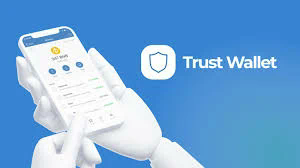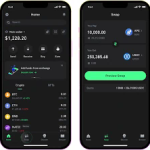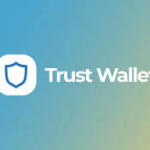Who Owns Trust Wallet: A Comprehensive Analysis
**Introduction**
Trust Wallet is a multi-currency cryptocurrency wallet that has gained significant popularity in the blockchain ecosystem. It provides users with a secure and user-friendly avenue to store, manage, and interact with a variety of cryptocurrencies and tokens. This article will delve into the ownership of Trust Wallet, its origins, features, and the broader implications of its acquisition, particularly in the context of the decentralized finance (DeFi) movement.
**1. Overview of Trust Wallet**
Launched in 2017, Trust Wallet started as an independent project created by Viktor Radchenko. The wallet gained traction for its emphasis on user privacy, security, and ease of use. Trust Wallet’s features include support for a wide range of cryptocurrencies (over 160,000), a decentralized exchange (DEX), a Web3 browser, staking capabilities, and an integrated NFT browser. These features contribute to its robust functionality, making it a preferred choice for many cryptocurrency enthusiasts and users.

**2. Acquisition by Binance**
In 2018, Trust Wallet was acquired by Binance, one of the largest cryptocurrency exchanges in the world. This acquisition was strategic for several reasons:
– **Expansion of Binance’s Ecosystem**: By integrating Trust Wallet into its ecosystem, Binance aimed to enhance its offerings beyond just an exchange. This allowed them to tap into the growing market of decentralized finance.
– **Affirmation of Users’ Control**: Trust Wallet’s decentralized approach aligned with the ethos of blockchain technology. By allowing users to control their private keys, it reinforced the principle of decentralization, which is a cornerstone of Binance’s long-term vision.
– **User Base Growth**: Binance’s vast user base and established brand were expected to give Trust Wallet a significant push in terms of user acquisition and adoption.
**3. The Implications of Ownership**
Understanding who owns Trust Wallet is more than just recognizing ownership; it involves examining the implications of Binance’s acquisition on the wallet’s development, features, privacy policies, and the overall crypto landscape.
**3.1 Influence on Development**
Following the acquisition, Trust Wallet has maintained its independence in terms of development. It operates as a separate entity within Binance, which has allowed it to continue evolving its features without being directly tied to Binance’s other products. This independence has reassured users that they can use Trust Wallet without facing conflicts of interest that may arise from its association with an exchange.
**3.2 Privacy and Security Concerns**
The acquisition raised questions about user privacy and security. While Trust Wallet is designed to prioritize user control over their cryptocurrencies, knowing that it is under the umbrella of a centralized exchange can lead to concerns about data privacy.
However, Trust Wallet has maintained its stance on security. Users still own their private keys, and Trust Wallet does not have access to users’ funds or their private information. This assurance of privacy continues to make Trust Wallet an attractive choice for users valuing anonymity and security.
**3.3 Integration with Binance’s Ecosystem**

Binance’s ownership has allowed Trust Wallet to integrate services that enhance user experience and functionality. For example, users can directly trade assets listed on Binance via the Trust Wallet DEX integration, which simplifies the trading process for many users. Furthermore, Binance users can easily transfer assets to and from Trust Wallet, bridging the gap between centralized and decentralized platforms.
**4. Trust Wallet’s Features and Offerings**
To appreciate the significance of Trust Wallet in the cryptocurrency landscape, it is essential to examine its features and offerings in detail:
**4.1 Multi-Currency Support**
Trust Wallet supports a vast array of cryptocurrencies and tokens across various blockchains. This inclusivity allows users to manage a diversified crypto portfolio in one place, significantly enhancing user convenience.
**4.2 Decentralized Exchange (DEX)**
Trust Wallet integrates seamlessly with decentralized exchanges, allowing users to trade tokens directly from their wallets. This feature permits users to retain full control of their assets while engaging in trades, thus ensuring a higher level of security compared to traditional exchanges.
**4.3 Staking Capabilities**
Trust Wallet allows users to stake certain cryptocurrencies directly from the wallet interface. Staking is a popular method for earning rewards on holdings, which aligns perfectly with the evolving DeFi landscape. This functionality makes it easier for users to earn passive income without needing to transfer their assets to a third-party service.
**4.4 Web3 Browser**
The in-built Web3 browser enables users to interact with decentralized applications (dApps), access DeFi platforms, and participate in various blockchain-based activities without compromising security or control. This positions Trust Wallet as a gateway for users looking to engage with the broader decentralized ecosystem.
**4.5 NFT Integration**
In response to the growing interest in non-fungible tokens (NFTs), Trust Wallet has also integrated NFT functionalities. Users can view, manage, and trade their NFTs seamlessly through the wallet, appealing to the expanding community of digital asset collectors.
**5. A Deep Dive into Decentralization**
A principal aspect of Trust Wallet’s appeal lies in its commitment to decentralization.
**5.1 The Essence of Decentralization**
Decentralization is foundational to blockchain technology. It empowers users by giving them control over their digital assets, reducing the reliance on intermediaries and centralized institutions.
**5.2 Trust Wallet’s Role in Promoting Decentralization**
Trust Wallet exemplifies this ethos by allowing users to create wallets without requiring personal information. The ownership of private keys is entirely user-centric, which represents a significant shift from traditional financial systems.
**5.3 Challenges to Decentralization**
While Trust Wallet promotes decentralization, there are inherent challenges. The relationship with Binance could be viewed as a centralizing force, particularly if future developments prioritize integration with Binance over other DeFi projects. Users must weigh the benefits of usability and integration against their commitment to decentralization.
**6. The Future of Trust Wallet and the Cryptocurrency Landscape**
As we look forward, the future of Trust Wallet and its role in the cryptocurrency landscape will depend on various factors:
**6.1 Regulation of Cryptocurrency**
As governments around the world continue to develop regulatory frameworks for cryptocurrencies, wallets like Trust Wallet will need to navigate compliance while maintaining their decentralized ethos.
**6.2 Evolution of DeFi**
The ongoing evolution of decentralized finance will dictate Trust Wallet’s relevance. As new protocols and products emerge, Trust Wallet may need to adapt rapidly to ensure it meets user needs without compromising on its foundational principles.
**6.3 Competition**
The cryptocurrency wallet market is competitive, with numerous alternatives available. Trust Wallet must continuously innovate and enhance its features to remain competitive in an environment where users have many choices.
**7. Conclusion**
In conclusion, Trust Wallet stands as a significant player in the cryptocurrency ecosystem, presenting a unique blend of user-focused features within a decentralized framework. Owned by Binance, it has navigated the complexities of being a part of a centralized entity while maintaining its independent identity. Trust Wallet’s emphasis on security, privacy, and the user experience positions it favorably among users, making it an important tool for anyone looking to engage in the cryptocurrency space.
As the cryptocurrency landscape continues to evolve, Trust Wallet’s development and direction will remain closely watched by users and industry observers alike. The dialogue surrounding its ownership and the implications on decentralization will be crucial as more people engage with digital assets in an increasingly digital world.


